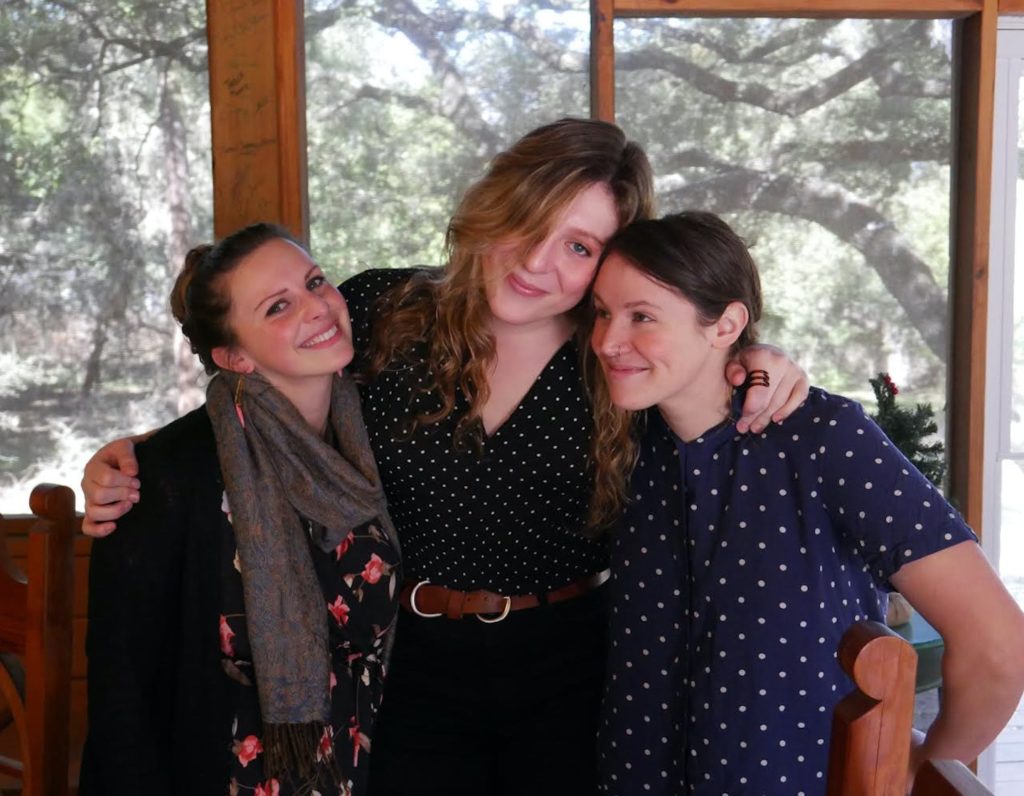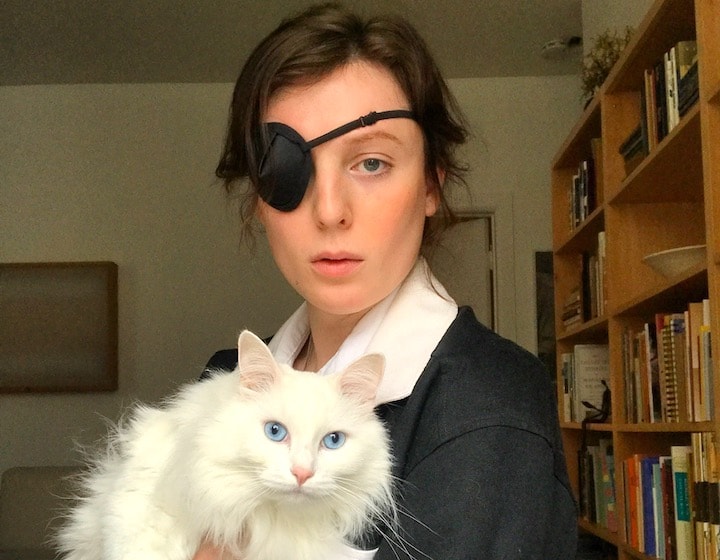
 Post Category - ParentingParenting - Post Category - Older KidsOlder Kids
Post Category - ParentingParenting - Post Category - Older KidsOlder KidsCan you choose your child’s gender? We thought we did, as young expat parents in Hong Kong. But life had other plans. Just as our boy became a man, we lost him.
The day we finally let him go, my husband Tom consulted YouTube instructions for a tinfoil origami boat, like what our little boy had sailed down gutters on rainy days. In the Matthew box beneath the stairs of our Texas home, we found hand-prints, sports ribbons, Pokemon, school reports, poems, university acceptance letters. And at the very bottom, a small blue card. It’s a Boy. We laid the card in the boat and drove to Pace Bend, a favorite family spot, where a river curves between limestone crags and cactus-studded coves. For the drive, Tom started an audio playlist, a long-ago gift from Matthew, filling the car with beloved tunes, ranging from Odetta’s Midnight Special to Townes Van Zandt’s Flying Shoes. The boat bobbed on my lap until we stopped at a waterside campsite. Above us, a mockingbird whistled. We lit a fire. In turn, Tom and I read aloud letters we’d each written for Matthew, love letters he would never read. We set them on fire, placed them in the boat, shoved it into the river. Wind kept slapping the little craft back to shore, but eventually it floated away.
Our ride home was quiet.

We’ve seen dear friends suffer through the death of a child. This was nowhere close. This was the death of an idea. The idea of a son.
Once upon a time, a neighbor passed along a well-used book, How to Choose the Sex of Your Baby. With two toddler girls, we thought, why not? We followed instructions: made sure my husband’s testicles were cool, consumed coffee and chocolate to agitate the little swimmers, refrained from sex for two weeks and then went for it the minute we calculated I was about to ovulate. The guidelines called for non-missionary positions and multiple female climaxes, the theory being that sperm could surf along the waves of those orgasms, shooting right past the Y-killing acidic vaginal cavity toward the target.
Success!
Our baby boy, wide-eyed, studied his world intently. Fast forward through Legos, dinosaurs, and Thomas the Tank engine, and our youngest became a mama’s boy, as Tom noted, not thrilled. I loved the way my boy expressed himself, his humor, his passions (first sentence: “Read book!”). I loved being the mother of a son, in addition to my two adorable girls.
At ten, Matthew asked “Am I gay?” You’ll know, I said. At twelve, he had a massive crush on a girl. A few years later, a boy. “I’m bisexual,” he declared. Then, eventually: “I’m gay.” We welcomed the college boyfriend. I enjoyed imagining myself as an old woman, escorted to the theater by my handsome gay son in a tuxedo. But Matthew seemed anxious, and so did Tom, whose family name was reaching a dead end. I was a buffer between the two. Tom gritted his teeth when at twenty-one, Matthew started wearing scarves, lipstick, mascara, announcing, “Actually I’m feminine-gay.”

My blood boiled when Matthew endured stares and taunts from strangers, whether TSA officials or waiters in fine restaurants. I wanted to fight. Only after he embarked on the long path toward gender transition did I discover the biggest fight of all would be with myself. My youngest would no longer be Matthew, but Maisie Louise Mattia. For a middle name, she took my own. I felt a typhoon of emotion. Partly I was touched by the name, a recognition of our deep connection. Partly I panicked, having read horrifying statistics about anti-trans violence and high suicide rates, as well as employment discrimination. Partly I felt a whoosh of anger, and didn’t know where to put it. Someone I loved had stolen my identity. I no longer would be the mother of a son.
“I get it mom,” Maisie said. “If you decided to transition, I would no longer have a mother.”
Her empathy gave me strength, which I would need. I bought makeup and lacey bras, extending the straps to fit her broad back. She opted for surgical transition after the required year of hormones and psychotherapy. This meant converting penis to vagina, a manoeuvre similar to turning a finger of a gardening glove inside out. Tom and I were primary caregivers during her arduous month-long recovery.
Our marriage counselor, on Skype, advised honoring the grief Tom and I felt. Thus the ritual with the boat. But if our reaction was grief alone, it would be a slap in the face of our child. We needed another ritual too. Something joyful.

“New name, new pronoun, same extraordinary person,” our printed card announced, inviting family to a sumptuous feast. How many would show up? They all came, ranging in age from one to ninety. My brother’s mother-in-law, a Presbyterian minister, offered a prayer to bless Maisie, and we all raised a toast. Moving on.
I wrote about our journey, such a lovely story-arc that a production company wanted to make a movie about our life. They didn’t understand what I soon learned: the celebration was not an end, it was merely the end of the beginning. Yes, it was joyous. But while Maisie appreciated the gesture and especially the widespread family support, she later admitted it felt awkward because people didn’t know how to talk to her in a way that made her feel seen.

The journey continues: My transgender daughter is not only trans, she has become polyamorous and politically outspoken in ways that would make my mother turn over in her grave far more than gender matters. Hormones sometimes rage between me and my three adult children. I have no idea what paths their lives will take in the future. For now, safety remains a constant concern for Maisie in particular, as evidenced by a knife attack she suffered earlier this year.
The idea of a movie has raised the serious question: whose story is it? A parent’s story—a parent’s grief, my grief—matters. The ceremony wasn’t just for Maisie, it was for all of us. And I wanted to share our experience with other parents, to validate what they feel, in service of entire families. But my daughter’s story is her own story, and she is incredibly courageous, no matter that she hates being described this way. I’m afraid for her, but proud. I never imagined this future for my child. Yet who are we to manage our children’s choices? What if my own mother tried to get in the way of my adult decisions? It wasn’t her business.
Maisie is a writer, a future I actually did imagine for her. Her literary mother, she often says, was the Brazilian author Clarice Lispector, who wrote: “How does it feel to have a daughter? At times it’s like holding a warm egg in my hand.”

Lessons we’ve learned through Maisie may apply to many parenting dilemmas. Here are just a few:
– Do your own research. If you have a transgender child, I recommend a 2020 book called Found in Transition by Paria Hassouri. Check here for local resources: www.congregaytion.
– Think before speaking. If a person doesn’t want their former name used, let it go. A name is not a person. (Maisie hasn’t yet declared Matthew a “dead name,” but many trans people feel differently.) Pronoun mistakes cut deeper than you think. Last year, for example, Christmas was almost ruined when someone at the table accidentally called Maisie “he” for the umpteenth time. This wasn’t just Maisie being oversensitive, she felt it as a form of erasure. Many gender-fluid people prefer to be they rather than he or she. Honor this preference, even if it seems grammatically offensive. Merriam-Webster finally embraced they as a singular pronoun in 2019. Everyone else can, too.
– Consider the whole family, not just the kid needing immediate attention. Respect your own feelings, but don’t shy away from interrogating yourself. Our middle child is gay, and grew up as a tomboy. Their gender journey was, for us, less tumultuous than that of our youngest. Why? Why do parents so often cheer for a tomboy daughter, while devaluing a boy with feminine quantities? Patriarchy is now a regular topic at our dinner table.
– Be wary of control, like thinking you can choose the sex of your baby. And be wary especially of neat endings. We all end up the same. It’s what we do in the middle of the story that counts. And much of that involves relinquishing control. I take strength from both the Serenity Prayer (God grant me the serenity to accept the things I cannot change…) and Khalil Gibran (Your children are not your children. They are the sons and daughters of life’s longing for itself.”)
– Listen without prejudice, even if your own values are at stake. Talk, talk, talk is what happens at our dinner table, in between bouts of sometimes sullen silence. I cling to our connection by slender threads. But those threads are elemental, made from love, which means they’re strong. Transition doesn’t change everything.
I’m a grandmother now. When I tell new friends, they ask the age-old question: boy or girl?
“Well,” I sometimes reply. “The little one has a penis.”
Read more:






 View All
View All




 View All
View All









 View All
View All







